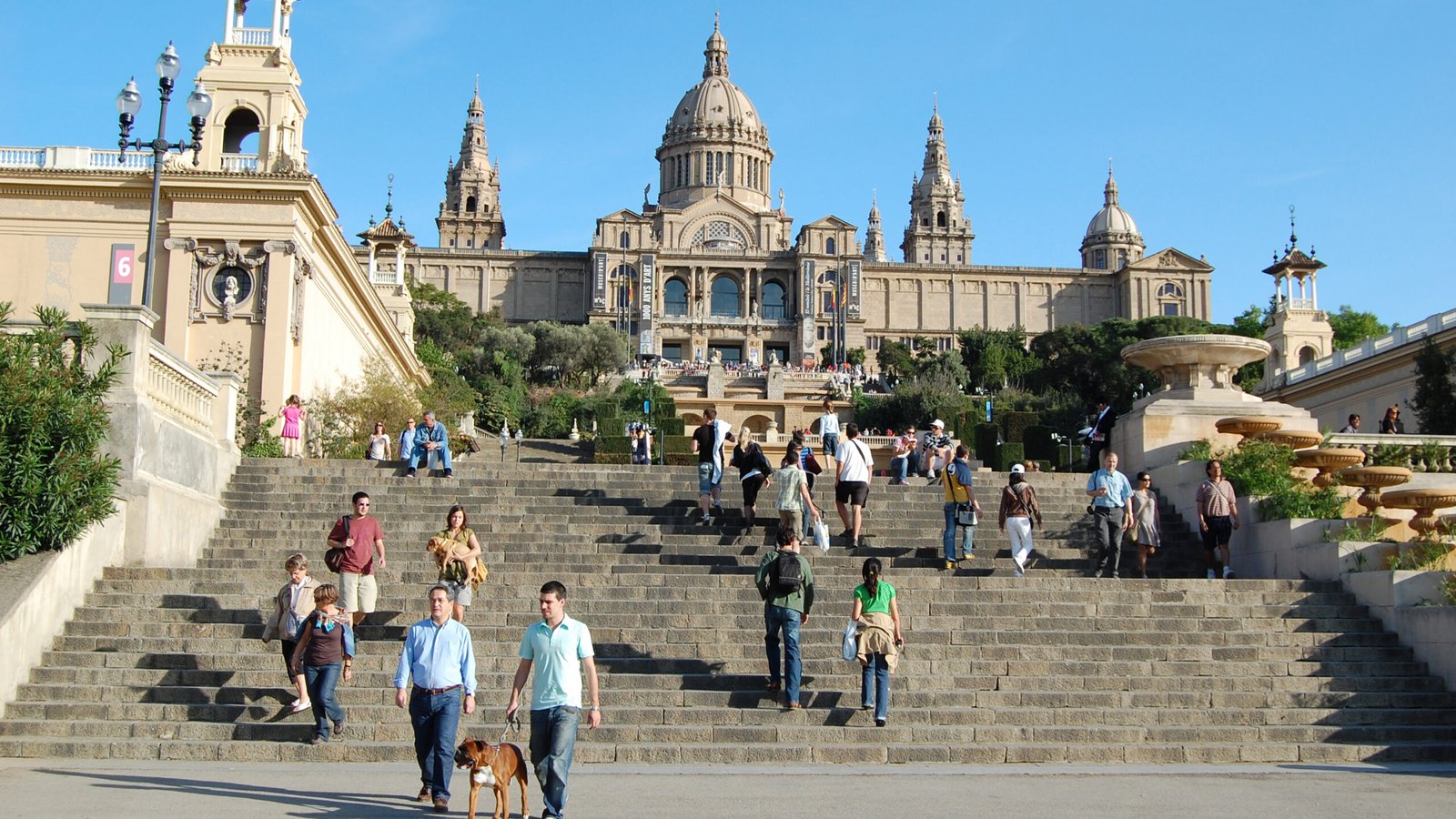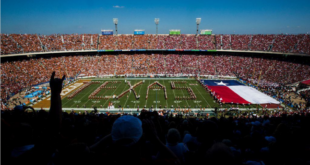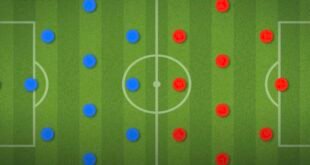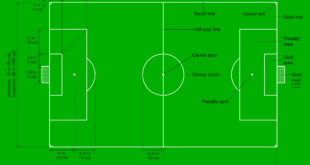As of the latest information, the time in Barcelona is in the Central European Time (CET) zone. It varies from UTC+1 to UTC+2 during daylight saving.
What time is it in Barcelona
Barcelona, the cosmopolitan capital of Spain’s Catalonia region, is known for its art, architecture, and rich cultural heritage. Visitors and locals alike enjoy the city’s picturesque landscapes, from the historic streets of the Gothic Quarter to the famous Sagrada Familia.
Business professionals, tourists, and international students need to stay aware of Barcelona’s time zone changes, which switch to Central European Summer Time (CEST) in the summer months. The city operates one hour ahead of Coordinated Universal Time (UTC+1) in winter, adjusting to daylight saving time to utilize longer daylight hours in the evening, making it UTC+2. Keeping track of the current time in Barcelona is crucial for managing travel plans, scheduling calls and meetings, or simply enjoying the vibrant lifestyle of this dynamic city.
Table of Contents

Credit: time.com
Understanding Time Zones
Time zones are geographical regions where the same standard time is kept. The world is divided into different zones to help coordinate time across countries and continents. Understanding the role of the prime meridian, which is set at zero degrees longitude, is crucial as it serves as the reference point for time zones. Areas to the east of the prime meridian are in time zones that are ahead of the Greenwich Mean Time (GMT), whereas areas to the west are behind.
To determine “What time is it in Barcelona Spain AM or PM,” knowing Barcelona’s local time zone GMT is important. Barcelona operates on Central European Time (CET), which is GMT+1, or GMT+2 during daylight saving time. Thus, calculating the local time involves adding or subtracting hours from GMT based on these time zone differences. This understanding eliminates confusion about what time it is in Barcelona GMT and helps in the synchronization of activities among people around the world.
Timekeeping In Spain
Spain operates under Central European Time (CET) for most of the year and Central European Summer Time (CEST) during the daylight saving months. This means that Spain, including Barcelona, typically aligns with countries like France and Germany rather than its geographical neighbors such as Portugal and the United Kingdom. Knowing the current Barcelona time and weather is crucial for tourists and business travelers alike.
The notorious siesta culture, which refers to the traditional midday break aimed at avoiding the hottest part of the day, influences daily schedules and business hours in Spain. Consequently, this cultural practice can affect how time is perceived and used throughout the day. Although the custom is less prevalent in major metropolitan areas like Barcelona, remnants of this tradition can still impact the opening hours of shops and public institutions.
For those wondering “What time is it in Madrid?” it’s the same as in Barcelona since both cities are in the same time zone. Thus, the entire Spanish mainland shares a single time zone, regardless of regional differences in culture and daily routines.
Daylight Saving Time In Europe
Understanding Daylight Saving Time (DST) is key to knowing what time it is in Spain. Historically, DST was first adopted in Europe during World War I to conserve energy by extending evening daylight hours. Over the years, the practice has evolved, and its implementation can affect the time in Spain AM or PM.
The impact on time in Barcelona is significant as Spain aligns with the European Union directives on DST. This leads to clocks being adjusted forward by one hour in late March and set back by one hour in late October. As a result, asking what time is it in Spain, especially in Barcelona, requires consideration of the dates during which DST is observed.
Current Time In Barcelona
Determining the current time in Barcelona may involve understanding the difference between digital and analog clocks. A digital clock displays time digitally, often down to the exact second, making it straightforward to read. On the other hand, an analog clock presents time with hands indicating hours, minutes, and sometimes seconds on a circular dial. While both types show the same time, digital clocks provide a quick, precise reference, whereas analog clocks offer a classic way of time-telling.
For accurate time tracking, numerous mobile apps and websites are available. They not only offer the current time in Barcelona but may also provide additional information like the temperature in Barcelona. Utilizing these resources ensures you have the exact time regardless of the clock type you prefer.
Local Timekeeping Customs
Barcelona has a rich heritage of traditional timekeeping tools, which reflect the city’s history and culture. Among these, the most recognized are the Grandfather clocks and sundials, many of which are still found in public spaces and private homes. These ancient time-telling devices, crafted with intricate designs, not only provide the time but also serve as artistic expressions of days past.
The local perceptions of time in Barcelona are deeply influenced by the city’s long history, daily social rhythms, and even the Mediterranean lifestyle. These factors contribute to a unique approach to time management and punctuality, which may differ from more strict schedules observed elsewhere.
Factors Affecting Time Perception
Cultural influences play a pivotal role in shaping the perception of time across different societies. In Barcelona, as in other metropolitan areas, the fast-paced lifestyle and the Barcelona time zone UTC+1 can lead to a sense of time speeding by more quickly. Time-consciousness is deeply embedded in local customs and daily routines, affecting how residents manage their time and activities.
Seasonal variations also significantly impact time perception. With changes in daylight hours, residents adjust their schedules and activities. Summertime brings longer days and a shift to daylight saving time, extending evenings and altering social schedules. Conversely, shorter winter days can compress time, influencing the pace of life and social interaction patterns.
Time Management In Barcelona
Understanding the Barcelona time zone is essential for both business and personal scheduling. The city follows Central European Time (CET) and adjusts for Daylight Saving Time, affecting both professional meetings and social appointments.
Local companies adhere to standard working hours, usually commencing at 9:00 am and wrapping up by 6:00 pm. Internationally, coordinating with partners may require awareness of time differences. On the individual level, arranging meetups demands attention to the unique Spanish culture which often sees afternoon and evening activities later than in many other countries.
Punctuality is often seen with a degree of flexibility; arriving a few minutes late to social gatherings is typically unremarkable. Nonetheless, formal scenarios and business contexts expect timeliness. Adapting to Barcelona’s rhythm is key to thriving in its vibrant economic and social scenes.
Navigating Time Differences
Traveling across time zones can be disorienting, making it essential to stay aware of the local time at your destination. For those heading to Barcelona, aligning activities and meetings according to the local time zone ensures a smoother experience. Consider utilizing world clock functions on your devices or online time zone converters to help keep track of Barcelona’s time.
Keep in mind that Spain might observe Daylight Saving Time (DST), causing time shifts. This may affect the usual time differences between your home location and Barcelona. For seamless scheduling, update your timekeeping devices automatically or double-check with reliable sources to confirm the current time in Barcelona before making any plans or setting reminders.
| Activity | Barcelona Time (CET/CEST) |
|---|---|
| Business Meetings | Align with work hours (9 AM – 6 PM) |
| Sightseeing | Best light conditions; Mid-morning to late afternoon |
| Dining Out | Restaurants are busiest from 2 PM for lunch and after 9 PM for dinner |
Mastering the art of time management can greatly enhance your trip. Always plan and factor in the local customs, such as typical meal times in Barcelona, to avoid any surprises.
Frequently Asked Questions For What Time Is It In Barcelona
What Time Zone Is Barcelona In?
Barcelona operates on Central European Time (CET), which is UTC +1.
How To Find Current Time In Barcelona?
You can check the current time in Barcelona by searching “Barcelona local time” online or using world clock features on smartphones.
Does Barcelona Observe Daylight Saving Time?
Yes, Barcelona observes Daylight Saving Time, typically adjusting clocks forward in late March and back in late October.
Can I Compare My Time Zone With Barcelona?
Various online tools allow you to compare your current time zone with Barcelona’s to plan calls or travel.
What’s Barcelona’s Time Difference From Est?
Barcelona is usually 6 hours ahead of Eastern Standard Time (EST). However, this may vary with daylight saving changes.
Conclusion
As we wrap up, remember the magic of Barcelona operating on its own local time. Checking the clock before reaching out or making plans is wise. Embrace the city’s pace and synchronize your watches for a seamless experience. Next time you ponder, “What time is it in Barcelona?
“simply revisit our guide for a quick update. ¡Hasta luego!
 Cric Enjoy Sports News, Cricket Update, Live Streaming
Cric Enjoy Sports News, Cricket Update, Live Streaming






